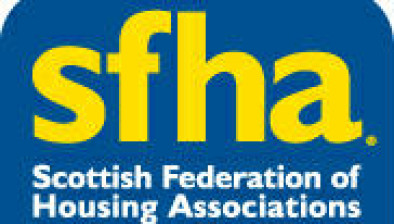SFHA: New support for tenants, not extended eviction notice periods, will help people to keep their homes

Sally Thomas
The Scottish Federation of Housing Association (SFHA) has welcomed the Scottish Government’s announcement of a new £10 million grant fund for tenants who have fallen into rent arrears as a result of the pandemic as well as a national awareness-raising campaign which will target all renters.
SFHA said it is these measures – and not extended notice periods for eviction orders – that will help tenants to remain in their homes.
The announcement comes after SFHA released a new report last week highlighting the process for evictions in the social housing sector, the work that housing associations and co-operatives carry out to help tenants to remain in their homes, and the principles that inform this approach.
The report also made three asks of the Scottish Government – increased financial support for tenants through grant funding, a national campaign on support for renters and for the government to continue lobbying the UK Government to make the £20 uplift to Universal Credit permanent.
SFHA said it was pleased the Scottish Government had accepted the basis of its recommendations.
Sally Thomas, SFHA chief executive, said: “SFHA and the Scottish Government have the same objective: we want tenants to be able to keep their homes. The way to achieve this is not through extended notice periods for eviction orders but through providing increased support to people who’re struggling to pay their rent as well as further awareness raising of the help that’s available – so we are pleased that the government has accepted the basis of our recommendations, and we will work with it on the detail and delivery.
“We look forward to working with the government to ensure that the grant funding has the maximum impact on those who need it most. It’s also crucial that the Scottish Government’s awareness raising campaign on support for renters includes clear messaging that highlights the importance of rent payment by tenants who are able to do so, details sources of support that are available and explains how non-payment of rent could affect investment in homes, services and communities in the future.”
She continued: “Housing associations and co-operatives work hard to help tenants who are struggling to pay their rent through tenancy sustainment services, including support to access benefits, budgeting advice, hardship funds and employability services.
“They arrange payment plans for tenants in rent arrears and will never evict someone who has agreed to, and is meeting, the conditions. However, at the same time, rent is vital for housing associations and co-operatives to pay for housing services, repairs and maintenance and to invest in new homes. Therefore, the government’s new measures should not only help more people to remain in their homes but support the provision of more affordable homes and the delivery of support and services for tenants and communities.”
Ms Thomas concluded:“Evictions remain a crucial last resort action for housing associations and co-operatives in cases of anti-social or criminal behaviour or when a tenant will not respond to their social landlord and agree a payment plan. This enables social landlords to protect other tenants and the local community as well as to keep delivering good quality affordable homes and vital services.
“Going forward, we hope that our report on evictions in the housing association and co-operative sector will help to alleviate any nervousness about reverting to the pre-pandemic evictions process. SFHA, and our members, will continue to work with the Scottish Government in order to deliver affordable homes and tenancy support services for the people and communities of Scotland.”









